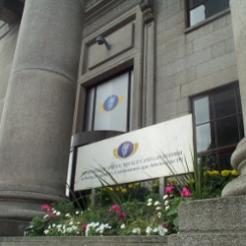The Irish government has appointed Úna Ní Dhubhghaill as the first chief executive for the Charities Regulatory Authority and expects the organisation to be set up by the end of 2014.
She is currently a principal officer in the Department of Justice and Equality and was appointed after an internal recruitment process. She has been appointed as chief executive-designate and will oversee the establishment of the organisation and get it up and running. Once a board has been appointed it will confirm the appointment of a chief executive.
The minister for justice, equality and defence, Alan Shatter, said that the appointment is “an important step towards our goal of establishing the new Charities Regulatory Authority within 2014”.
He intends to appoint a chair of an independent board for the new regulator by Easter. Shatter has already sought expressions of interest from people wishing to join the board of the Charities Regulatory Authority.
One of the first tasks for the Authority will be the development and publication of a register of charities under the terms of the Charities Act.
Before joining the Department of Justice and Equality, Ní Dhubhghaill worked for the Department of Foreign Affairs and the Department of the Environment, Community and Local Government. She holds a masters in applied governance from the Institute of Public Administration at the University College Dublin.
Earlier this year Ireland announced emergency plans to set up a charity regulator after there was a public outcry over a €742,000 pay-off for Paul Kiely, the chief executive of the Central Remedial Clinic, a national centre for the care, treatment and development of children and adults with physical disabilities. The CRC receives income both from the state and donations. Kiely’s pay-off was equal to almost half the donations received in the year, according to reports in Irish national newspapers.









